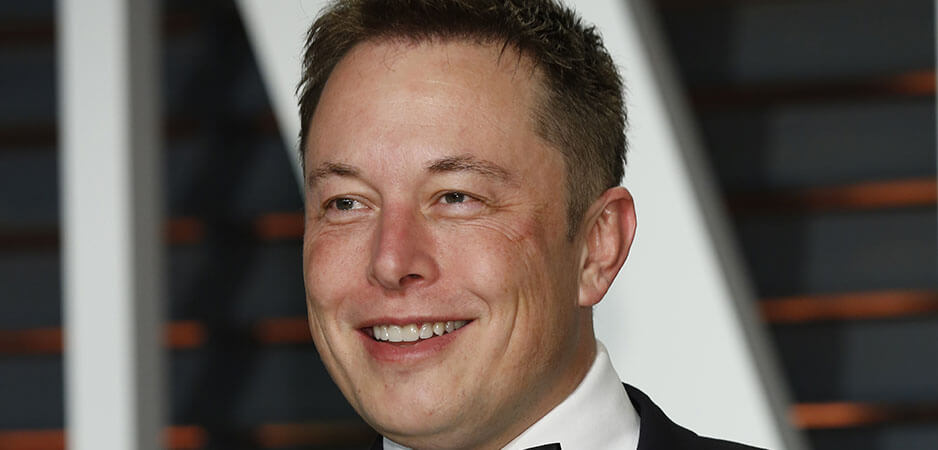Those who find reality boring will find hyperreality truly boring.
In the age of Donald Trump, America’s first 100% hyperreal president, Elon Musk may be using his platform of fame to demonstrate the depth and breadth of hyperreality in today’s culture. He is doing this through what may turn out to be an elaborate hoax. On January 29, he claimed that The Boring Company — dedicated to futuristic underground urban transport — had sold 7,000 recreational flamethrowers worth $500 each that were admittedly “off-brand.” A day later, the figure rose to 15,000.
As of January 29, the story was reported earnestly by the media, though in some cases with a soupçon of skepticism. The following day, a California legislator expressed his wrath: “If this is real, I’m outraged and you should be too. If this is a joke, then it’s a terribly insensitive one given that we’re coming off of the worst wildfire season in history.”
Although Musk didn’t use the term hyperreality to hype his product, here at The Daily Devil’s Dictionary we feel there is a definite need to define it and apply it to this case.
Hyperreality:
A tool for manipulating crowds available to anyone who has acquired a level of fame that automatically confers credibility on anything they do, however outrageous, enabling such people to put together a project that crosses the borderline to the absurd without anyone noticing
Perhaps the most obvious example of hyperreality was the election of Donald Trump as president of the United States, a fact we jokingly predicted as a case of deliberate hyperreality, published at Fair Observer a week before the 2016 election, on October 31. In December 2016, we cited other examples linking the recent obsession with fake news to the triumph of hyperreality.
Contextual note
Hyperreality is a serious sociological concept initially proposed by Jean Baudrillard in Simulacra and Simulation.
Here is how the Collins Dictionary defines it: “[A]n image or simulation, or an aggregate of images and simulations, that either distorts the reality it purports to depict or does not in fact depict anything with a real existence at all, but which nonetheless comes to constitute reality.”
Musk possesses the celebrity and access to funding that put him on the same level as Trump in his ability to fabricate hyperreality and expect people to accept it as their reality. Unlike Trump, Musk may be sending a message that is meant more as a satirical demonstration, a cautionary tale and a warning than a genuine commercial initiative. It reads like an illustration of everything that is perverse in our current society of the spectacle.
Musk plays on all the stops of today’s hyperreal commercial culture. The marketing pitch itself is so over-the-top it should logically discourage any rational human being from even considering spending money on the product. The language parodies the worst infomercials: “guaranteed to liven up any party,” “it comes with a free blockchain,” “definitely don’t buy one. Unless you like fun.”
Everything about it highlights the hyperreal workings of contemporary commercial culture:
1) Crass marketing opportunism consciously focusing on the notion of branding itself: “I know it’s a little off-brand, but kids love it.”
2) “Fun” as a legitimate justification overriding serious risk (the Jackass principle)
3) The appeal to aggressive instincts and weaponry that can harm others (related to the psychology of gun culture)
4) Naked greed (his allusion to cryptocurrency: “a free blockchain”)
5) The power of artificial intelligence (AI), which pundits predict will eventually become “sentient” like his flamethrower
6) The viral appeal of poorly made amateur videos
7) The appeal to everyday pragmatism in infomercial pitches (“good for roasting nuts”)
One wonders if the last one isn’t itself a pun — the “nuts” being those who are crazy enough to order it and who are being “roasted” (mocked) by this very campaign.
Historical note
When Baudrillard launched the concept, hyperreality was far less evident than it is today. We are now immersed in it. The imminent arrival of AI, predicted if not promised by nearly everyone, means that reality may someday be integrally replaced by hyperreality. Musk has warned against the dangers of AI but has also launched a company, Neuralink, dedicated not only to developing artificial intelligence, but to connecting it to people’s brains.
Elon Musk is a cultural icon who has proved his unique ability to suck money from both serious venture capitalists and gullible online consumers, to whom he has successfully sold overpriced baseball caps and now costly flamethrowers advertised as party gear.
The (hyper)real question is this: As he tries to sell us something, is he also trying to tell us something? Or maybe his purpose is what he claims, simply to raise money from the gullible. Which is also telling us something. And perhaps something even more important!
*[In the age of Oscar Wilde and Mark Twain, another American wit, the journalist Ambrose Bierce, produced a series of satirical definitions of commonly used terms, throwing light on their hidden meanings in real discourse. Bierce eventually collected and published them as a book, The Devil’s Dictionary, in 1911. We have shamelessly appropriated his title in the interest of continuing his wholesome pedagogical effort to enlighten generations of readers of the news.]
The views expressed in this article are the author’s own and do not necessarily reflect Fair Observer’s editorial policy.
Photo Credit: Kathy Hutchins / Shutterstock.com
Support Fair Observer
We rely on your support for our independence, diversity and quality.
For more than 10 years, Fair Observer has been free, fair and independent. No billionaire owns us, no advertisers control us. We are a reader-supported nonprofit. Unlike many other publications, we keep our content free for readers regardless of where they live or whether they can afford to pay. We have no paywalls and no ads.
In the post-truth era of fake news, echo chambers and filter bubbles, we publish a plurality of perspectives from around the world. Anyone can publish with us, but everyone goes through a rigorous editorial process. So, you get fact-checked, well-reasoned content instead of noise.
We publish 2,500+ voices from 90+ countries. We also conduct education and training programs
on subjects ranging from digital media and journalism to writing and critical thinking. This
doesn’t come cheap. Servers, editors, trainers and web developers cost
money.
Please consider supporting us on a regular basis as a recurring donor or a
sustaining member.
Will you support FO’s journalism?
We rely on your support for our independence, diversity and quality.






